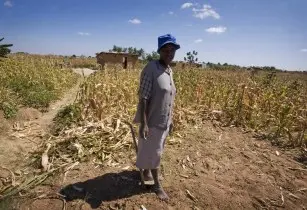The course aimed at providing training on agricultural policy with a view to strengthening and/or renewing the knowledge and capacity of African policy makers
From 24 July - 4 August 2017, the African Institute for Economic Development and Planning (IDEP) organised a course on Agricultural Policy for African public officials.
The course gathered 27 participants from the following countries: Benin, Burkina Faso, Burundi, Cameroon, Central Africa, Chad, Comoros, Cote d’Ivoire, Democratic Republic of Congo, Egypt, Ethiopia, Kenya, Malawi, Mauritania, Morocco, Namibia, Nigeria, Senegal, Sierra Leone, Sudan, Swaziland, Tunisia, Zambia and Zimbabwe.
Among the 27 participants were two participants from regional institutions, namely the West African Economic and Monetary Union (WAEMU) and the Intergovernmental Authority on Development (IGAD).
The course aimed at providing training on agricultural policy with a view to strengthening and/or renewing the knowledge and capacity of African policy makers, including senior managers, negotiators, advisors, planners and analysts, to meet the core challenges of growing the agricultural sector as a central engine of national economic development and social policy.
In doing so, the course exposed participants not only to the current state of knowledge and the comparative lessons which are available to Africa, but also to some of the best practices that serve as relevant examples of how an integrated and comprehensive agricultural policy regime has been used to promote economic transformation and social well-being.
The course raised awareness for Africans to improve the terms of trade for African agricultural exports, and have a watchdog attitude regarding new issues centering on oligopolistic controls exercised by major corporations in the global seed market, the introduction of genetically-modified crops, the sustainability of the environment, and the increased interest of international financial speculators in international agricultural markets.
The modules presented emphasised agricultural policy which is fit for the challenges faced by African countries and that must capture the complex inter-connections between domestic and global processes in order for durable national development to be delivered through the mobilization of the opportunities offered by the agricultural sector.





